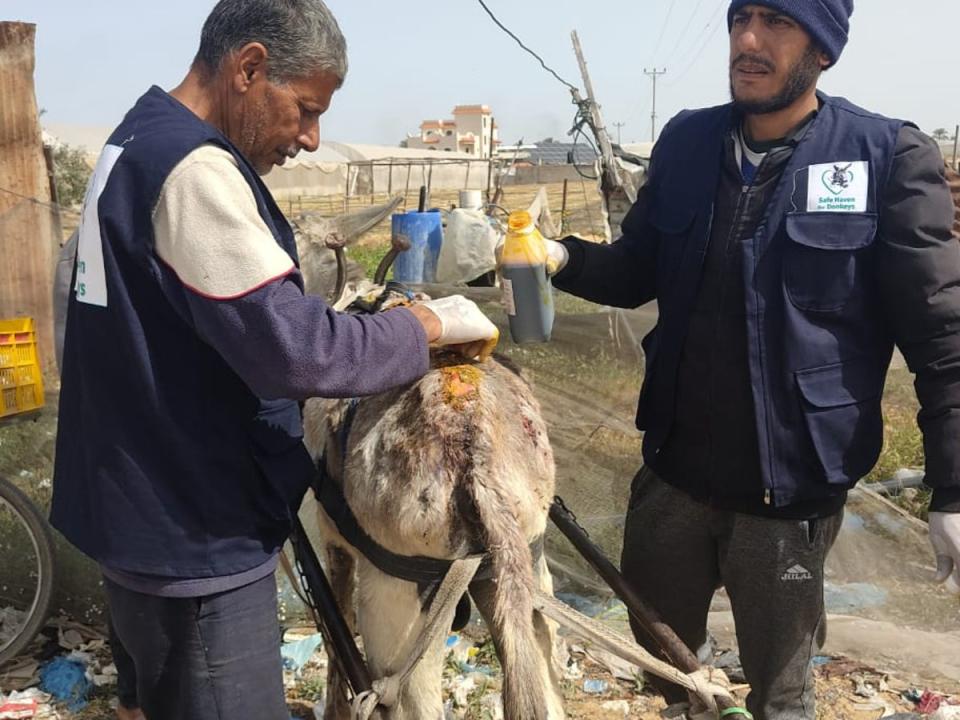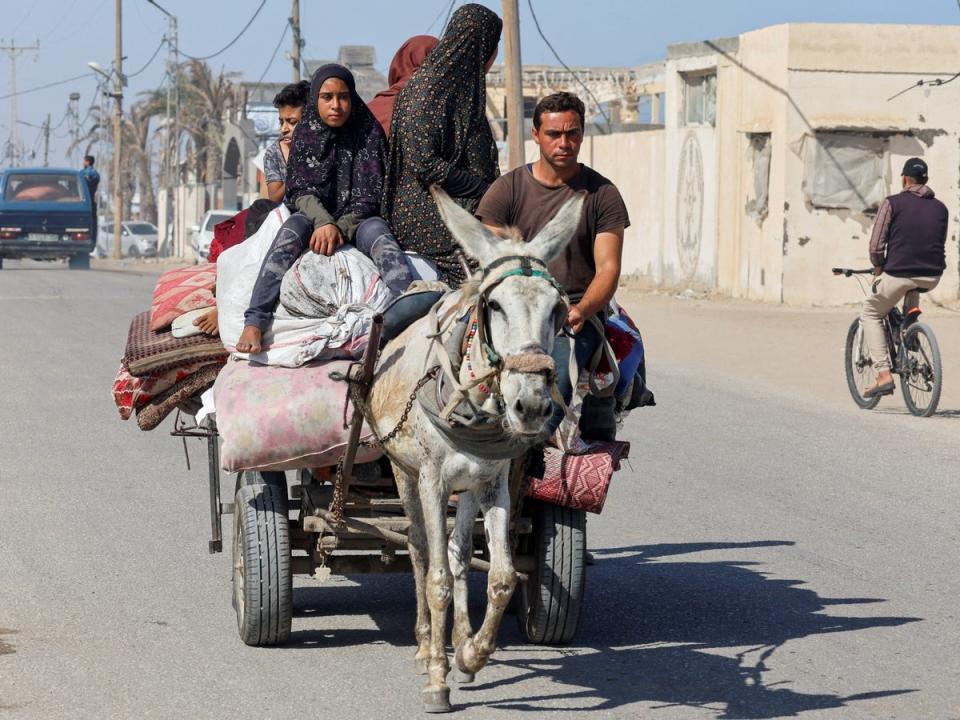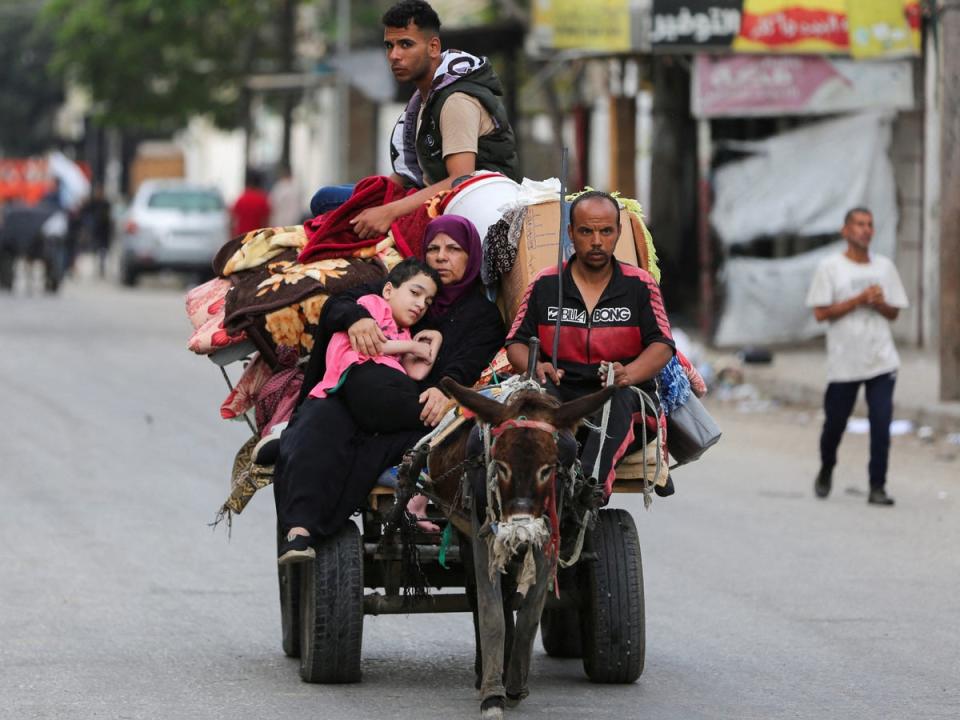Donkey ‘ambulances’ in Gaza suffer horrific hunger, shrapnel wounds and beatings, says charity
Life-saving donkeys forced to carry people, corpses and heavy building materials around Gaza are suffering widespread malnourishment, dehydration and excruciating wounds, according to a charity trying to care for them.
Hundreds of the animals – vital to support Palestinians fleeing Israeli bombardments – have been killed, while those remaining are at risk of death and letting down the refugees who depend on them, it’s warned.
With fuel scarce and many lorries and cars destroyed during the fighting raging since 7 October, donkeys and horses have become the only means of transport for many people.

UK-based charity Safe Haven for Donkeys says the animals face horrific suffering while they are used for work such as taking survivors of the war and water and other supplies to packed refugee camps, as well as ferrying the dead and wounded to hospital.
Chief executive Andy Foxcroft said: “We are acutely aware of the human need but we cannot stand by as animals suffer, not least when they could be helping the wider community.
“The iconic image of a car with its engine removed being towed by an underweight donkey is now a reality.”
He told The Independent that horrific wounds from beatings were as common as injuries from harnesses, missiles and bombs.

He said: “Beating a donkey with a pipe or a broken fan belt just normal thing to do. It’s quite common.
“Children are often responsible for the donkeys, and we see injuries caused by beating as much as by harnessing.
“If donkeys are scared, they tend to stop and stand still, which is often interpreted as feeling no pain.”
The charity’s roadside clinics in Gaza treat up to 30 donkeys and horses a day.
A first aid package of animal food and veterinary medication has just arrived, and fundraisers are organising a second, which could arrive in July – although, with Israelcontrolling the Rafah crossing, all aid shipments are sporadic.

The charity wants to send more pain relief, bandages and antibiotics, as well as surgical instruments and food.
Dr Saif Shehda, leader of the four-strong mobile team, said: “Animals are used as a significant means of transport in saving people’s lives and transporting the dead.
“This is especially the case in the northern parts of Gaza and Khan Younis.
“They work under horrific conditions due to lack of food, fatigue and beating.

“A considerable number of donkeys and horses suffer from serious injuries due to the explosion of missiles and bombs. Shrapnel has killed some and injured many.”
The charity, which cares for working and abandoned donkeys in the Palestinian territories, Israel and Egypt, says it is the only mobile vet clinic in Gaza.
The first shipment got through only “because the stars aligned” – the team had a contact in another aid organisation able to help.
Mr Foxcroft added: “Animals are way down the priority list,” he said. “But donkeys and horses will only be able to support their owners and the community if they are fed and cared for.”

 Yahoo News
Yahoo News 
